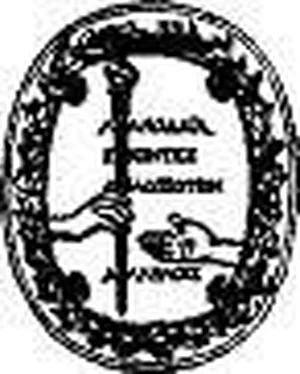Herbert Wells - Tales of Space and Time
Здесь есть возможность читать онлайн «Herbert Wells - Tales of Space and Time» весь текст электронной книги совершенно бесплатно (целиком полную версию без сокращений). В некоторых случаях можно слушать аудио, скачать через торрент в формате fb2 и присутствует краткое содержание. Жанр: Фантастика и фэнтези, на английском языке. Описание произведения, (предисловие) а так же отзывы посетителей доступны на портале библиотеки ЛибКат.
- Название:Tales of Space and Time
- Автор:
- Жанр:
- Год:неизвестен
- ISBN:нет данных
- Рейтинг книги:4 / 5. Голосов: 1
-
Избранное:Добавить в избранное
- Отзывы:
-
Ваша оценка:
- 80
- 1
- 2
- 3
- 4
- 5
Tales of Space and Time: краткое содержание, описание и аннотация
Предлагаем к чтению аннотацию, описание, краткое содержание или предисловие (зависит от того, что написал сам автор книги «Tales of Space and Time»). Если вы не нашли необходимую информацию о книге — напишите в комментариях, мы постараемся отыскать её.
Tales of Space and Time — читать онлайн бесплатно полную книгу (весь текст) целиком
Ниже представлен текст книги, разбитый по страницам. Система сохранения места последней прочитанной страницы, позволяет с удобством читать онлайн бесплатно книгу «Tales of Space and Time», без необходимости каждый раз заново искать на чём Вы остановились. Поставьте закладку, и сможете в любой момент перейти на страницу, на которой закончили чтение.
Интервал:
Закладка:
His standard of employment had fallen steadily until at last it had reached the lowest level of independent workers. At first he had aspired to some high official position in the great Flying or Wind Vane or Water Companies, or to an appointment on one of the General Intelligence Organisations that had replaced newspapers, or to some professional partnership, but those were the dreams of the beginning. From that he had passed to speculation, and three hundred gold "lions" out of Elizabeth's thousand had vanished one evening in the share market. Now he was glad his good looks secured him a trial in the position of salesman to the Suzannah Hat Syndicate, a Syndicate, dealing in ladies' caps, hair decorations, and hats—for though the city was completely covered in, ladies still wore extremely elaborate and beautiful hats at the theatres and places of public worship.
It would have been amusing if one could have confronted a Regent Street shopkeeper of the nineteenth century with the development of his establishment in which Denton's duties lay. Nineteenth Way was still sometimes called Regent Street, but it was now a street of moving platforms and nearly eight hundred feet wide. The middle space was immovable and gave access by staircases descending into subterranean ways to the houses on either side. Right and left were an ascending series of continuous platforms each of which travelled about five miles an hour faster than the one internal to it, so that one could step from platform to platform until one reached the swiftest outer way and so go about the city. The establishment of the Suzannah Hat Syndicate projected a vast façade upon the outer way, sending out overhead at either end an overlapping series of huge white glass screens, on which gigantic animated pictures of the faces of well-known beautiful living women wearing novelties in hats were thrown. A dense crowd was always collected in the stationary central way watching a vast kinematograph which displayed the changing fashion. The whole front of the building was in perpetual chromatic change, and all down the façade —four hundred feet it measured—and all across the street of moving ways, laced and winked and glittered in a thousand varieties of colour and lettering the inscription—
Suzanna! 'ets! Suzanna! 'ets!
A broadside of gigantic phonographs drowned all conversation in the moving way and roared " hats " at the passer-by, while far down the street and up, other batteries counselled the public to "walk down for Suzannah," and queried, "Why don't you buy the girl a hat?"
For the benefit of those who chanced to be deaf—and deafness was not uncommon in the London of that age, inscriptions of all sizes were thrown from the roof above upon the moving platforms themselves, and on one's hand or on the bald head of the man before one, or on a lady's shoulders, or in a sudden jet of flame before one's feet, the moving finger wrote in unanticipated letters of fire " 'ets r chip t'de ," or simply " 'ets ." And spite of all these efforts so high was the pitch at which the city lived, so trained became one's eyes and ears to ignore all sorts of advertisement, that many a citizen had passed that place thousands of times and was still unaware of the existence of the Suzannah Hat Syndicate.
To enter the building one descended the staircase in the middle way and walked through a public passage in which pretty girls promenaded, girls who were willing to wear a ticketed hat for a small fee. The entrance chamber was a large hall in which wax heads fashionably adorned rotated gracefully upon pedestals, and from this one passed through a cash office to an interminable series of little rooms, each room with its salesman, its three or four hats and pins, its mirrors, its kinematographs, telephones and hat slides in communication with the central depôt, its comfortable lounge and tempting refreshments. A salesman in such an apartment did Denton now become. It was his business to attend to any of the incessant stream of ladies who chose to stop with him, to behave as winningly as possible, to offer refreshment, to converse on any topic the possible customer chose, and to guide the conversation dexterously but not insistently towards hats. He was to suggest trying on various types of hat and to show by his manner and bearing, but without any coarse flattery, the enhanced impression made by the hats he wished to sell. He had several mirrors, adapted by various subtleties of curvature and tint to different types of face and complexion, and much depended on the proper use of these.
Denton flung himself at these curious and not very congenial duties with a good will and energy that would have amazed him a year before; but all to no purpose. The Senior Manageress, who had selected him for appointment and conferred various small marks of favour upon him, suddenly changed in her manner, declared for no assignable cause that he was stupid, and dismissed him at the end of six weeks of salesmanship. So Denton had to resume his ineffectual search for employment.
This second search did not last very long. Their money was at the ebb. To eke it out a little longer they resolved to part with their darling Dings, and took that small person to one of the public creches that abounded in the city. That was the common use of the time. The industrial emancipation of women, the correlated disorganisation of the secluded "home," had rendered creches a necessity for all but very rich and exceptionally-minded people. Therein children encountered hygienic and educational advantages impossible without such organisation. Creches were of all classes and types of luxury, down to those of the Labour Company, where children were taken on credit, to be redeemed in labour as they grew up.
But both Denton and Elizabeth being, as I have explained, strange old-fashioned young people, full of nineteenth-century ideas, hated these convenient creches exceedingly and at last took their little daughter to one with extreme reluctance. They were received by a motherly person in a uniform who was very brisk and prompt in her manner until Elizabeth wept at the mention of parting from her child. The motherly person, after a brief astonishment at this unusual emotion, changed suddenly into a creature of hope and comfort, and so won Elizabeth's gratitude for life. They were conducted into a vast room presided over by several nurses and with hundreds of two-year-old girls grouped about the toy-covered floor. This was the Two-year-old Room. Two nurses came forward, and Elizabeth watched their bearing towards Dings with jealous eyes. They were kind—it was clear they felt kind, and yet ...
Presently it was time to go. By that time Dings was happily established in a corner, sitting on the floor with her arms filled, and herself, indeed, for the most part hidden by an unaccustomed wealth of toys. She seemed careless of all human relationships as her parents receded.
They were forbidden to upset her by saying good-bye.
At the door Elizabeth glanced back for the last time, and behold! Dings had dropped her new wealth and was standing with a dubious face. Suddenly Elizabeth gasped, and the motherly nurse pushed her forward and closed the door.
"You can come again soon, dear," she said, with unexpected tenderness in her eyes. For a moment Elizabeth stared at her with a blank face. "You can come again soon," repeated the nurse. Then with a swift transition Elizabeth was weeping in the nurse's arms. So it was that Denton's heart was won also.
And three weeks after our young people were absolutely penniless, and only one way lay open. They must go to the Labour Company. So soon as the rent was a week overdue their few remaining possessions were seized, and with scant courtesy they were shown the way out of the hotel. Elizabeth walked along the passage towards the staircase that ascended to the motionless middle way, too dulled by misery to think. Denton stopped behind to finish a stinging and unsatisfactory argument with the hotel porter, and then came hurrying after her, flushed and hot. He slackened his pace as he overtook her, and together they ascended to the middle way in silence. There they found two seats vacant and sat down.
Читать дальшеИнтервал:
Закладка:
Похожие книги на «Tales of Space and Time»
Представляем Вашему вниманию похожие книги на «Tales of Space and Time» списком для выбора. Мы отобрали схожую по названию и смыслу литературу в надежде предоставить читателям больше вариантов отыскать новые, интересные, ещё непрочитанные произведения.
Обсуждение, отзывы о книге «Tales of Space and Time» и просто собственные мнения читателей. Оставьте ваши комментарии, напишите, что Вы думаете о произведении, его смысле или главных героях. Укажите что конкретно понравилось, а что нет, и почему Вы так считаете.





